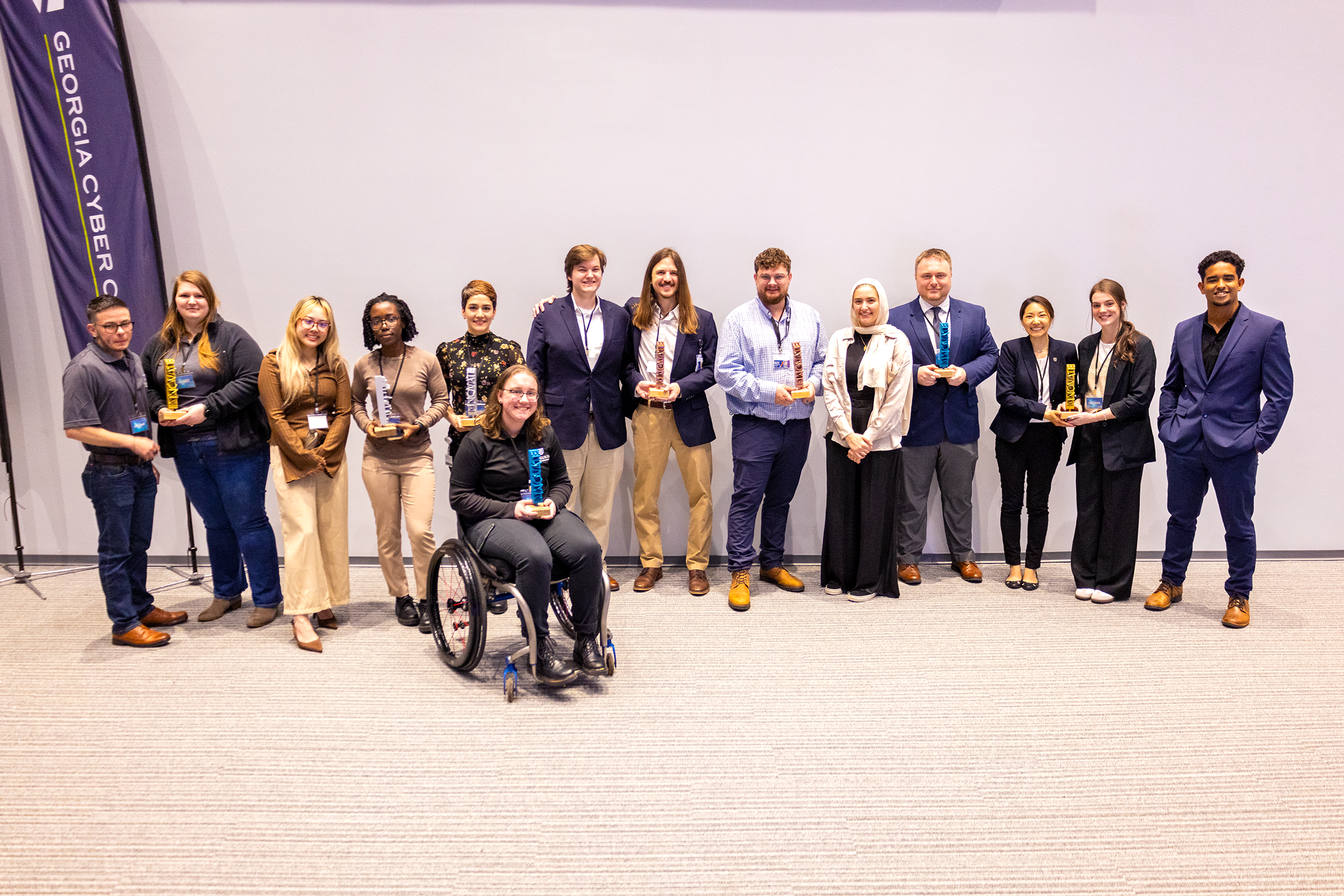Augusta University students took the opportunity to show off their problem-solving skills at the fifth annual Innovate Pitch Competition, Thursday morning, held at the Georgia Cyber Innovation and Training Center.
The event, coordinated via a partnership between AU, the Cyber Center, Pabst Patent Group, Augusta Preparatory Day School, the Augusta VA and entrepreneurial nonprofit Make Startups, invites select teams of graduate and undergrad students to present five-minute pitches for ways to address local challenges in the community.
“We’re building a pipeline so that students can take their ideas into reality, and that’s through our partnerships,” said Lynsey Steinberg, director of innovation at the Cyber Center, and one of the competition’s organizers.
The competition receives approximately 350 submissions each year, Steinberg explained, from which 10 to 11 teams are chosen to participate.
Winning teams in the contest were rewarded with a free trial of CoFounderOS, the AI-powered business launching software by Make Startups. First place winners also received free provisional patents for their ideas, if applicable, and a $5,000 cash prize.
“This is the ideation phase, right? So we build that pipeline of innovation and work with our partners to help support the entire region,” Steinburg said. “Because the key thing is with collaboration and innovation we can solve any problem.”
The student contestants presented a host of concepts, products and inventions to address issues ranging from homelessness to healthcare.
Jack Evans, director of Organizational Change Management and Strategic Initiatives at AU, and one of three judges at Innovate 2024, applauded the thoughtfulness and preparation of the students.
“What separates a good idea from a great concept is if you’ve thought it through… if you’ve thought about the impact that it’s going to have on the intended community you’re trying to serve,” said Evans.
He also lauded the resolution of the young presenters, and the value of the experiential learning they received in participating.
“I think it shows that they do have what it takes to bring these ideas to fruition,” he said. “Innovation is not about always succeeding, but the fact that they had the courage to stand up here and deliver these pitches means that they have the courage to go forward and be successful.”
First place undergraduate winners Alex Larsen, Robert Voetglen and Lauren Clifton won with “Savvy,” an app to tackle inflation. The program would help families find the best retail deals—primarily for groceries—in their area, and to connect with others to keep up with the latest sales.
“As a cashier, I regularly see people have to try and budget even on the fly,” said Larsen. “On a day-to-day basis, there’s at least five to 20 customers that have to go back and forth, avoiding putting things back in until they can wiggle within what may just be a $50 budget.”
The first-place graduate winners were Hiroko Tanaka and Rachel Laird, both students in the Medical Illustration Graduate Program who designed “Wound Simulation,” a virtual tool to help med students practice tending to wounds. The program even features an array of underrepresented skin tones in its “patients.”
“I think it’s really awesome that we have gotten this opportunity to expound upon the significance of medical illustrations,” said Laird. “When we talk about it with people, sometimes all they know is that we draw pictures and those go in textbooks … but medical illustration goes so far beyond that. It’s visualizing any sort of medical concept and coming up with ideas like this, like working in a space and training students.”
When choosing teams to contend and win in Innovate, the impact of the concepts are key, said Steinberg.
“Whether it’s … food deserts, homelessness, blight downtown, those are things that we can solve here in Augusta,” she said. “And our students can do it together.
Skyler Q. Andrews is a staff reporter for The Augusta Press. Reach him at skyler@theaugustapress.com.










